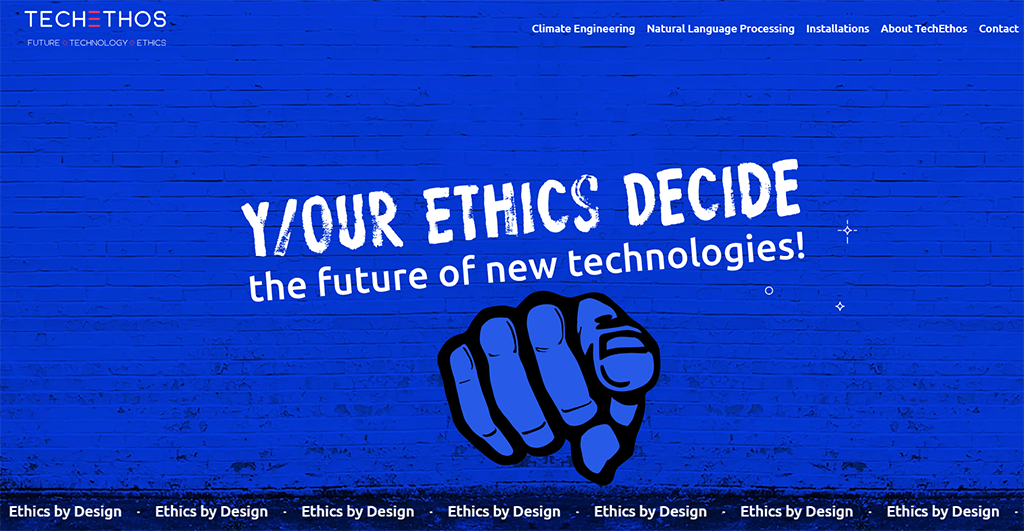Y/our Ethics Decide: an interactive Digital Installation on the ethical dimensions of Climate Engineering and Natural Language Processing
Tool
Y/our Ethics Decide: an interactive Digital Installation on the ethical dimensions of Climate Engineering and Natural Language Processing
In an era dominated by unprecedented technological advancements, the ethical implications of innovation must have a central role. Y/our Ethics Decide, a revolutionary digital installation, invites you to explore the complex interplay of ethics, technology, and societal values. Embark on this immersive experience, where “Ethics by design” shapes the narrative right from the inception of emerging technologies.
Have a closer look at the Digital Installation
Y/our Ethics Decide: A Visionary Approach to Tech Ethics
Y/our Ethics Decide is not only a digital installation – but a journey into the future of responsible technology. Based on the principle of Ethics by design, Y/our Ethics ensures that societal values lead the way in the development of new technologies. This unique approach empowers individuals from diverse backgrounds to actively participate in shaping the ethical landscape of emerging realms.
Climate Engineering: Addressing the Urgency of Our Time
Y/our Ethics Decide navigates the realm of Climate Engineering. Technologies like Nature-based Carbon Dioxide Removal and Engineered Carbon Dioxide Removal take center stage, aiming to mitigate the effects of climate change. Solar Radiation Management, a pivotal aspect of Climate Engineering, explores innovative methods to reflect sunlight and cool the planet.
Natural Language Processing: Decoding the Heart of Digital Interaction
Our digital installation delves into the heart of Digital Extended Reality. Here, artificial intelligence comprehends and responds to human communication, offering insights into the evolving landscape of interactive technologies. Affective computing and chatbots further enhance these capabilities, underscoring the critical need for responsible development in this fast-paced and dynamic space.
Do you want to find out more and discover further information about emerging technologies? Check the interactive Y/our Ethics Decide here.
This exhibition is available under the Creative Commons Attribution-ShareAlike (CC-BY-SA) licence. This means that it is open for sharing, copying and redistributing the material in any medium or format, and for adapting, remixing, transforming, and build upon the material for any purpose, including commercially. This is applicable for both the digital and the physical versions of the exhibition. You are required to credit Ecsite – the European Network of Science Centres & Museums, and the TechEthos project.
Do you want to make your own version of the installation?
Share:

















